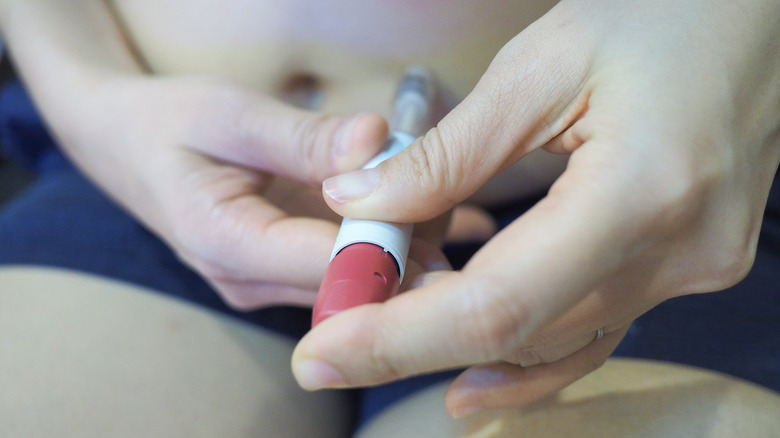What Happens To Your Body When You Donate Eggs
Egg donation can make a huge difference in the lives of women who aren't able to conceive using their own eggs. The actual procedure itself is relatively straightforward, but egg donors can expect a multi-week process with lots of doctor appointments to make sure everything is going well (via VeryWell Family). If you decide that becoming an egg donor is right for you, there are some important things that you need to be aware of before starting.
In order to qualify as an egg donor, you'll need to meet a specific set of criteria. First, you must be a nonsmoker (via UNC Fertility), and because weight plays a role in the success rate of egg donation, you can't be overweight. Once you've filled out a questionnaire about your qualifications, you'll meet with several doctors to assess your physical and mental health, and you'll have blood taken for testing and genetic screening, as well. After you've been approved as a donor, you'll begin taking medication that will cause your normal menstrual cycle to stop (via Medical News Today). Women may expect to have headaches, hot flashes, or other types of aches and fatigue from these hormones.
Watch out for these side effects at each step
As a donor, you'll then need to give yourself shots of fertility drugs that will cause your ovaries to make multiple eggs at the same time (via Medical News Today). These injections happen every day for up to 12 days, and are given in your abdomen (via Shady Grove Fertility). Mood swings and tender breasts are common side effects of these injections, and bruising where the injection occurred is also likely. While it's a pretty rare occurrence, if you happen to develop a condition where your ovaries produce too many eggs, you may need to be hospitalized.
The final step in egg donation is retrieval. Taking about 20 to 30 minutes, it's a relatively quick procedure that involves a doctor placing an ultrasound probe into the vagina so they can see the ovaries, and then they will use a needle to remove your eggs. You will need to have light anesthesia or twilight sedation.
As far as recovery goes, it's possible you might need to take a few days to rest after this procedure, but many women are able to return to normal activities by the next day. Your body may react to the anesthesia, but serious reactions or damage to the ovaries or other surrounding organs are not likely. Once the entire process is complete, you can expect to be compensated, and your body should go right back to your normal cycle and egg production once everything is complete.


